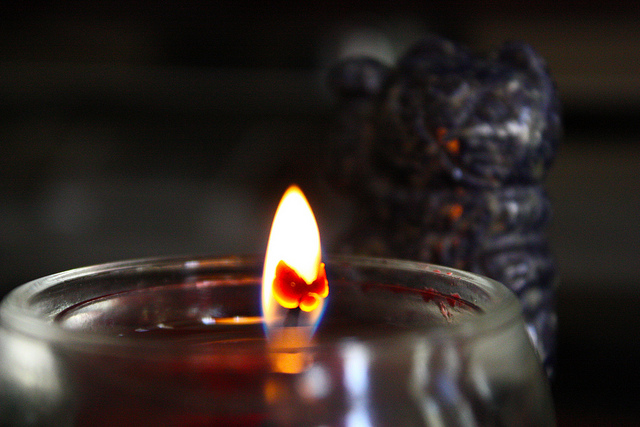“Meditation is the soul’s perspective glass.” ~ Owen Feltham
Many, many books have been written about meditation.
I’ve read a good number of them, from Zen Buddhist practices to Kundalini yoga. I began meditating at the age of 21. My regular practice was shoddy at times, to say the least. I often felt I couldn’t sacrifice an hour of my day to sit and do nothing. Think nothing. After all, that’s the principle of most meditation practices: Strive to have no thoughts.
When I meditated, a thought arose and my conscious mind said, “That’s bad. I’m supposed to have no thoughts. I have to stretch out the space between thoughts. I suck at this!” And then I had to start over.
It wasn’t until I began studying Dzogchen, a Tibetan Buddhist teaching, that I realized meditation had a much broader definition. In Dzogchen, the idea is to clear the mind of “dual” thoughts. That is, judgments about what is good and bad, worthy and useless, etc. Thoughts will arise—we’re conscious beings—but attach no significance to them.
As Dzogchen master Chögyal Namkhai Norbu says, we should observe thoughts as a mirror reflects images. They are just there. Then they move away. The mirror does not judge the images as right or wrong, good or bad. Other techniques suggest you consider thoughts as you would clouds in the sky. We’d never try to hold onto a cloud. That’s silly. Not to mention impossible.
We let it float across the sky, without judgment. There’s no, “Man, that cloud is stupid.” I don’t know about you, but I found this lesson to be a great relief. Now I could sit, be peaceful, and let my random thoughts float across the sky of my mind, free from the burden of categorizing or valuing them.
It’s with this premise that you can begin your meditation practice.
We’ve established that our regenerative energy needs solitude to thrive. Sometimes our minds become so cluttered with the stresses of our life that no matter what activities we use to unwind and reconnect with Self—reading, writing, seeing a film, taking a bath—the stress never lets us fully recharge. In that way, meditation is a helpful tool.
Now, before you dismiss the idea of meditating as being too lofty for you, give it a try. Even if you’ve tried before and hated it, try again. You may find this helpful: Your meditation sessions don’t have to be an hour long. Or even half an hour. You can start with five minutes. Or two.
A full 120 seconds devoted to clearing the mind and relaxing your body will do wonders for 24 hours straight of daily stress. Besides, even the busiest parent or CEO has the ability let go of the daily grind for 120 seconds.
Micro-Meditation in 10 Steps:
This meditation practice is designed to be done quickly, but keep in mind that it must be done fully, with awareness and positive intention. You’re devoting a minimum of two minutes to your own health. Take it seriously. Ideally you’ll want to practice this meditation every day.
- Go to your sacred space. Light your candles and/or incense. Whatever your instincts tell you will help you relax.
- Set your clock for the length of time you wish to meditate. Start with two minutes if you wish. Or go for five minutes to start. (Eventually you won’t need to set a clock; you’ll know instinctively when it’s time to stop.)
- Sit comfortably on a pillow or chair with a straight back. Don’t lie down or you might fall asleep.
- Close your eyes or keep your eyes focused on an object (candle flame, god or goddess statue, inspirational painting, photo of a beloved teacher).
- Take a slow, deep breath in through your nose and out through your mouth.
- Continue deep breathing in this manner until your body naturally begins to breathe calmly on its own.
- Now turn your attention to your body. Relax all the muscles you can and still remain upright. Imagine your body dissolving into the air around you.
- As thoughts arise, do not judge them or pay attention to them. Let them drift by, like clouds in the sky.
- As your time ends, take another cleansing breath—in through the nose and out through the mouth.
- You may wish to end with an affirmation or set an intention for your day. Say thank you to yourself, your higher power, The Universe—whatever you feel is a good way to honor your practice.
Love elephant and want to go steady?
Sign up for our (curated) daily and weekly newsletters!
Editor: Renée Picard
Image: Nina at Flickr
 Share on bsky
Share on bsky






Read 0 comments and reply